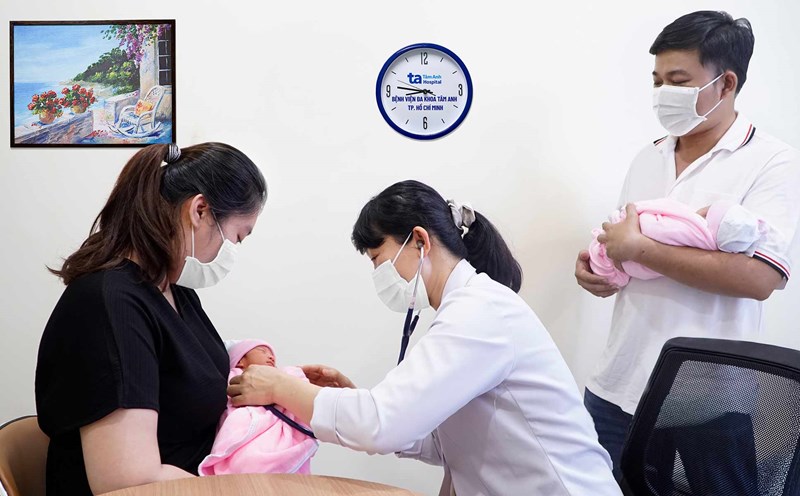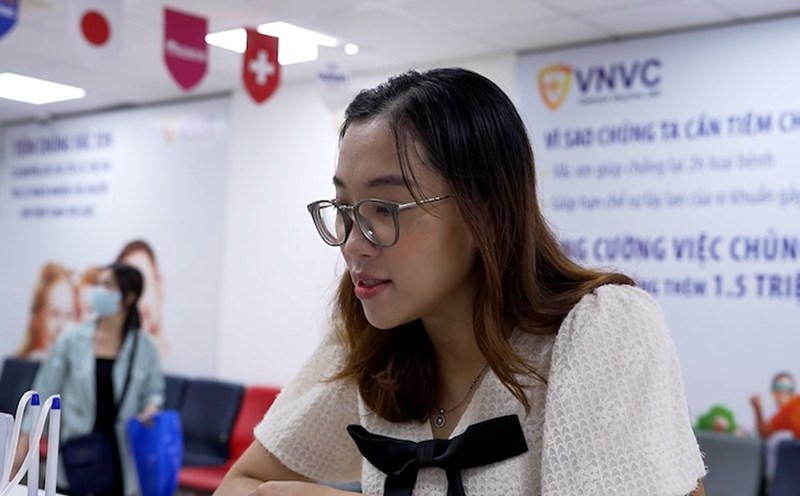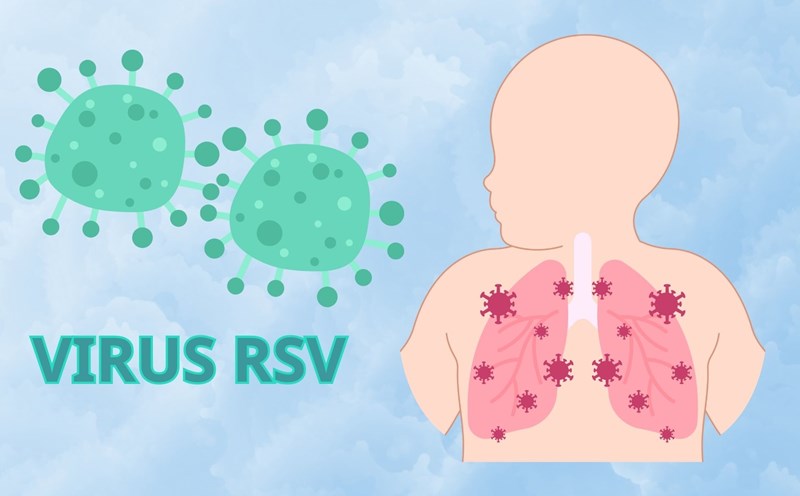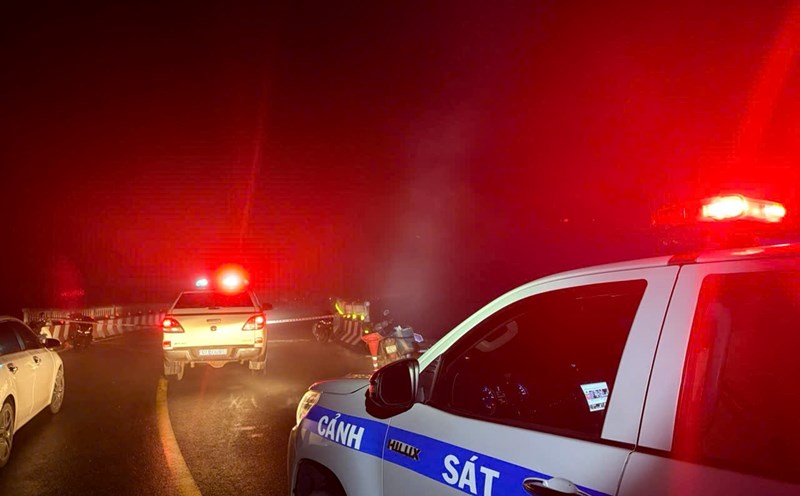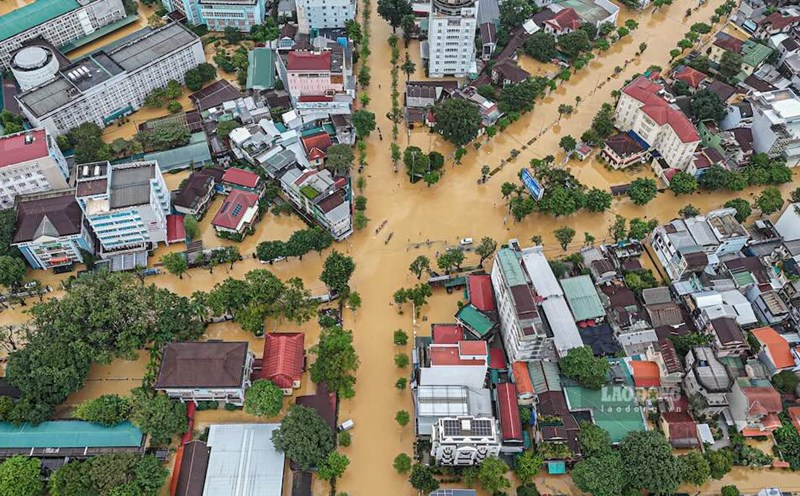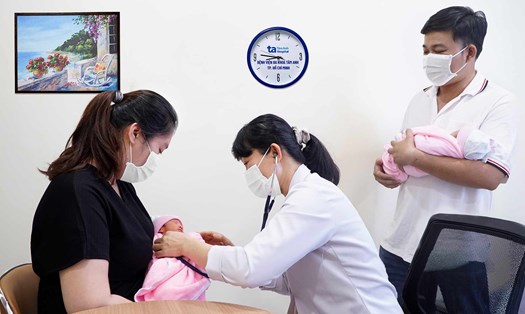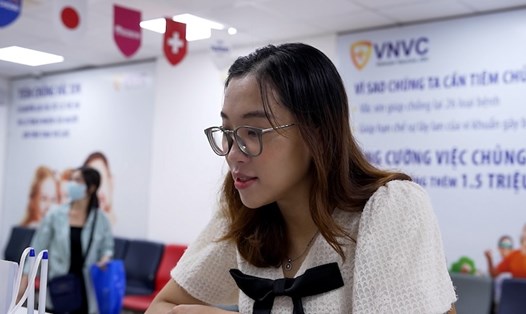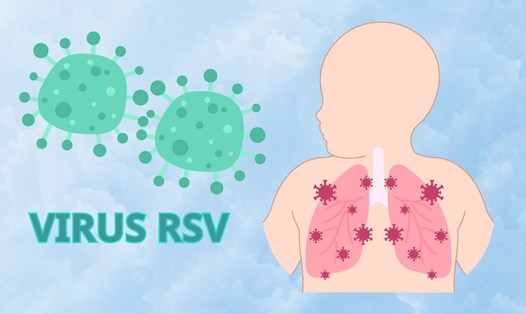Ms. Hoai Thu (in Cau Giay ward, Hanoi) took her child to the hospital with a high fever, shortness of breath, and fatigue after two days of illness and had to be hospitalized for treatment. Test results showed that the child had mild pneumonia due to a respiratory viral vector (RSV).
According to Dr. Ha To Nhu - An Viet General Hospital, in recent days, the number of children hospitalized for inpatient examination and treatment due to RSV virus infection has increased sharply. This is a type of virus that is transmitted through the respiratory tract or through secretions on surfaces such as desks and chairs, toys, door handles, etc.
RSV is usually around the year but is most active from May to November. The current changing seasons create favorable conditions for viruses and respiratory bacteria to develop, increasing diseases such as flu, sore throat, bronchitis or pneumonia. These diseases are especially dangerous for young children, especially children under 6 months old, premature babies, or children under 2 years old with congenital heart disease, chronic lung disease.
Doctor Ha To Nhu added that RSV is the leading cause of bronchitis and pneumonia in young children, especially during the changing seasons. The severity of the disease depends on many factors such as age, underlying diseases and a history of infection in children.
According to doctors, symptoms of RSV infection are initially quite similar to the common cold, including nasal congestion, runny nose, cough, mild fever and sore throat. However, in infants under 6 weeks old, the disease often manifests itself in crying, poor breastfeeding, fatigue, and difficulty breathing. In young people at high risk such as premature birth or underlying diseases, the disease can progress severely with symptoms of high fever, coughing, wheezing, feeding, greening of the skin, and even apparent apnea.
RSV has the same ability to spread strongly as the cold virus, mainly through the eyes, nose or close contact with the patient. The virus can last for up to 6 hours on surfaces such as desks, toys, doormates; about 25 minutes on the skin and lasts for up to 4 weeks in the body of children or people with weakened immune systems.
To reduce the risk of infection, parents need to proactively prevent it by regularly washing their hands, disinfecting surfaces, wearing masks when going out and limiting close contact with children. For children in high-risk groups, RSV prevention with monoline antibodies is necessary to limit complications. There is currently no specific treatment for RSV, treatment focuses on respiratory support and immune enhancement for children.

